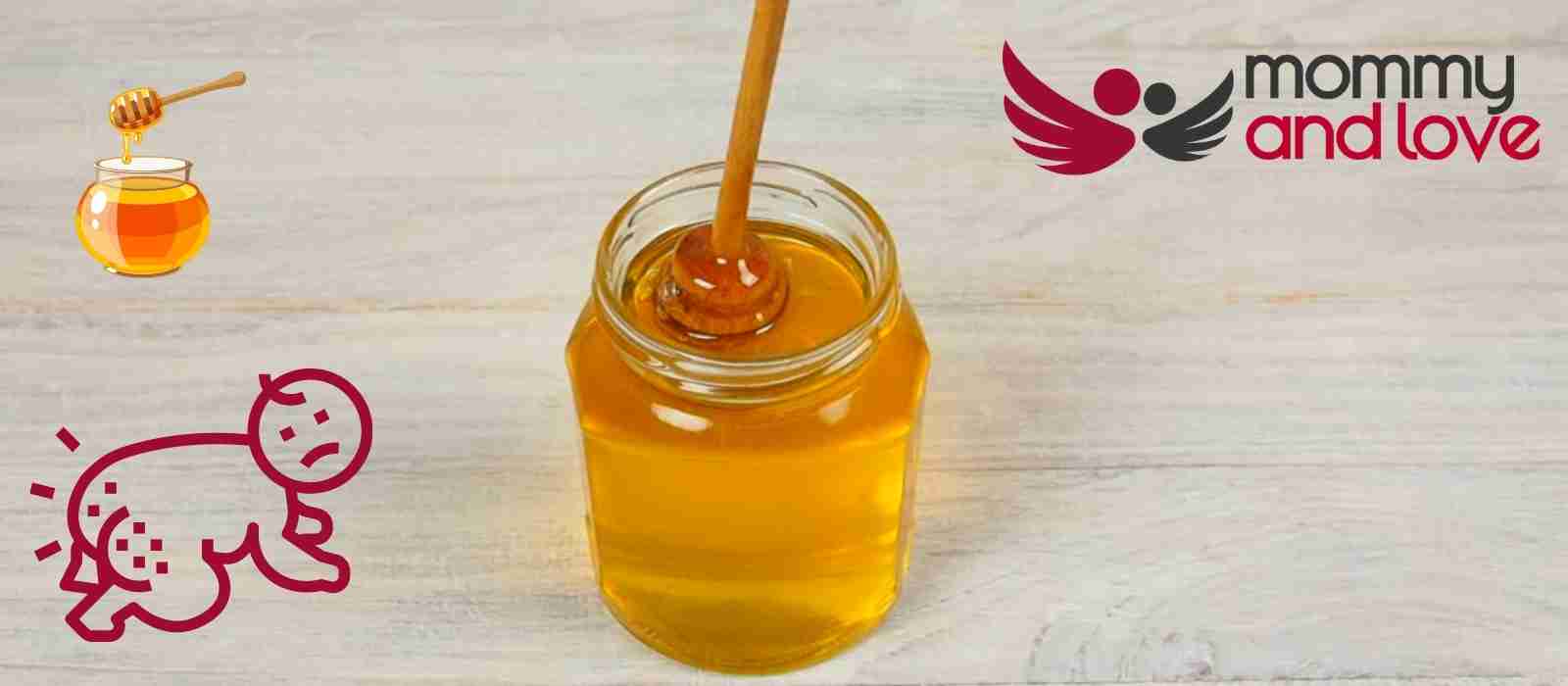It’s a question that every parent has asked at one time or another: can honey cause a diaper rash? The answer, as it turns out, is a bit complicated. While honey can certainly contribute to a rash in some cases, it’s not always the culprit. Here’s what you need to know about honey and diaper rash, along with some tips for avoiding this common issue.
When can babies have honey?
Wait until your baby is 12 months old before introducing honey. Even pasteurized jars aren’t guaranteed to remove all bacteria since this process cannot be relied upon. Honey-containing foods should also be avoided. We’ve done a guide on if you can eat honey when you are breastfeeding or what to do if you have accidentally given your baby honey, and even if babies can eat honey nut cheerios.
Can babies be allergic to honey?
An allergic reaction to honey is a rare occurrence, particularly in children. Very few children have developed sensitivities to honey. While it is a rare condition, honey can cause mild to severe allergic reactions, such as anaphylaxis, when ingested.
Does honey cause diaper rashes?
It is extremely rare for honey to cause diaper rash. And in these cases, it could be that honey has triggered an allergic reaction. Nonetheless, if your baby develops a rash after consuming honey, stop giving her honey until you talk to her doctor.
It is also important to take care of her diaper rashes immediately. Interestingly, honey is used in healing diaper rash. It is widely believed that honey contains anti-inflammatory, antimicrobial, and antibacterial properties. Of course, if the diaper rashes were caused by honey, using honey as a home treatment is out of the question.
There are alternative natural remedies to honey in terms of diaper rash treatments. Here are natural diaper rash treatments:
Aloe Vera
Like honey, aloe vera also has natural antibiotic, antimicrobial and anti-inflammatory properties which help treat a baby’s diaper rashes and other skin irritation. It is generally safe to use on babies older than 3 months. However, if you have reservations about using it as a home remedy, you can always talk to your doctor.
Chamomile Tea
Chamomile tea works as an antiseptic on your baby’s diaper rash. In addition to reducing rashes, it also promotes healing. When changing your baby’s diaper, mix two cups of chamomile tea together and spray it over your baby’s skin.
Coconut Oil
Coconut oil is a great solution for treating diaper rash on your baby. However, its mild nature may not be sufficient to significantly improve the condition of a tough rash. You may need to try other rash products that are petroleum-based or zinc oxide-based if you don’t see positive results within 24 hours.
Apple Cider Vinegar
A teaspoon of raw apple cider vinegar diluted with a half cup of water can help heal diaper irritation in babies. Use a clean washcloth to apply it to the baby’s bottom. Allow it to dry and diaper as normal.
Breast Milk
If your baby has rashes, breast milk may soothe the skin, treat the rashes, and prevent the rash from spreading.
Olive Oil
Using olive oil can help moisturize dry or itchy skin as well as create a protective barrier on irritated skin. In addition, it can alleviate symptoms of skin conditions like eczema, diaper rash, and cradle cap. As an alternative to ointment or diaper rash creams, it can be used on your baby’s rash.
Basic diapering can also help prevent the rash from becoming and may even speed up the healing process. Here are a few tips to help you treat your baby’s skin diaper rash:
- Regardless of whether you are using a disposable diaper or a washable one, more frequent diaper changes should prevent the diaper region from prolonged exposure to stool and urine.
- If your baby is already eating solid foods, keep a food diary to keep track of what she is eating to make sure no other foods are causing the rash or loose bowel movement.
- Apply a thick layer of diaper rash cream or petroleum jelly that contains zinc oxide to the affected area at every diaper change. Doing so will create a protective layer of barrier between the diaper area and moisture.
- Remove the dirty diaper and before putting on a clean diaper, gently wipe a cotton ball or soft cloth in warm water and mild soap. Use this instead of store-bought baby wipes that contain alcohol.
- Allow your baby to enjoy some diaper-free time. And before putting on a fresh diaper (disposable diapers or cloth diapers), pat your baby’s clean bottom dry.
- Avoid using baby powder. Your baby might inhale the talc which is extremely dangerous to her lungs.
- If you are using cloth diapers, wash them using mild detergent. Stong detergents, bleach, fabric softeners and dryer sheets should be avoided. These laundry products contain chemicals that are considered irritants.
- If you suspect a yeast infection, contact your doctor right away. He or she will recommend a prescription medication such as an antifungal cream to treat the yeast rash. Yeast infections are more likely to happen to babies who are taking oral antibiotics for a bacterial infection. Antibiotics kill bad and good bacteria. This effect can lead to yeast overgrowth which can then result in a yeast infection.
Takeaway
Honey is least likely to cause a diaper rash. However, some babies and toddlers can be allergic to honey and a rash forms as a negative reaction. When this happens, it is important to stop giving your child honey and talk to our baby’s doctor immediately.
You should also watch out for signs of either a fungal infection or a bacterial infection. Both of these conditions can lead to a rash in the diaper area of your baby’s skin.
Home remedies such as baking soda, breast milk, corn starch, petroleum jelly and coconut oil are available.




